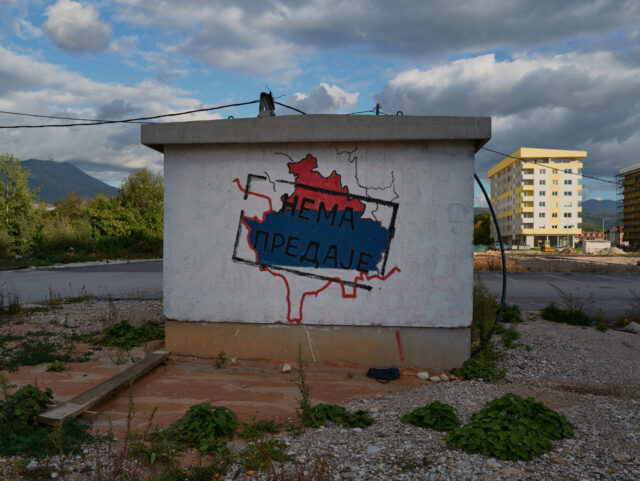PRISTINA, Kosovo (AP) – Representatives of the ethnic Serb minority in Kosovo on Saturday resigned from their posts in protest over the dismissal of a police officer who did not follow the government’s decision on vehicle license plates.
Earlier this week Pristina authorities dismissed a senior Serb police officer in northern Kosovo, where most of the ethnic Serbs live, who refused to respect the decision to change vehicle license plates in Kosovo to ones issued by Kosovo. The shift has ignited volatile issues about Kosovo’s sovereignty, especially among its Serb minority, many of whom still want the former Serb province to be part of Serbia and not independent.
Serbia itself has never recognized the independence of Kosovo.
As the measure came into effect Tuesday, Kosovo authorities said enforcement would be gradual. In three weeks Pristina authorities will be issuing warnings to the ethnic Serbs who keep their old license number plates. For the next two months they will be fined, and for three other months until April 21, they can drive only with replaced temporary local plates.
Ethnic Serbs have a government minister, 10 parliamentarians and other top posts in governing, police, and judiciary in the four local communities dominated by them. All resigned and senior police officers symbolically took off their uniforms after a meeting Saturday. The effect of the mass resignation was unclear.
Kosovar Prime Minister Albin Kurti called on the ethnic Serbs not to boycott the local institutions, “not to fall prey of political manipulations and geopolitical games.” Kurti claimed that Serbian President Aleksandar Vucic was lying to American and European envoys and “often meets with and coordinates with the Russian ambassador to Belgrade.”
“Not being a democratic country, Serbia is becoming a Kremlin tool,” Kurti posted on social media.
Seven Hurt as Kosovo Police Clash with Ethnic Serbs https://t.co/ROhpLn4LbE
— Breitbart London (@BreitbartLondon) October 13, 2021
In Belgrade, Vucic attended a government session, met the Serbian Orthodox Church Patriarch Porfirije, as well as the ambassadors of Serbia’s international allies on Kosovo, Russia and China, to discuss the situation in Kosovo. Vucic also spoke on the phone with the U.S. ambassador in Belgrade.
Vucic said that Serbia is determined to strongly defend its vital national interests.
Trouble brewed this summer over Serbia’s and Kosovo’s refusal to recognize each other’s identity documents and vehicle license plates. Kosovo Serbs in the north put up roadblocks, sounded air raid sirens and fired guns into the air.
In August, EU and U.S. envoys negotiated a solution to the travel documents problem, allowing the situation to calm down.
Then Pristina also decided to postpone to Nov. 1 the decision to require vehicles holding old or Serbian license plates to replace them with Kosovar ones. That also meant that vehicles entering from Serbia had to replace Serbian license plates with Kosovo ones.
For the past 11 years, the reverse has been required by Serbia for vehicles coming in from Kosovo.
The European Union has told Kosovo and Serbia they must normalize ties if they want to advance toward membership in the 27-nation bloc. Brussels and Washington recently have stepped up mediation efforts, fearing uncertainties over the war in Ukraine and Serbia’s close ties with Russia could aggravate matters between Serbia and Kosovo.
Kosovo’s 2008 independence has been recognized by the United States and most EU countries, while Serbia has relied on support from Moscow and China for its bid to retain the former province. Belgrade lost control over Kosovo in 1999 after NATO bombed the country to stop its brutal crackdown against ethnic Albanian separatists.
Serbia: We Will Save Kosovo Serbs from 'Persecution and Pogroms' If NATO Will Not https://t.co/9jNcFZdN3a
— Breitbart London (@BreitbartLondon) August 21, 2022
Semini reported from Tirana, Albania; Jovana Gec contributed from Belgrade.
Follow Breitbart London on Facebook: Breitbart London

COMMENTS
Please let us know if you're having issues with commenting.